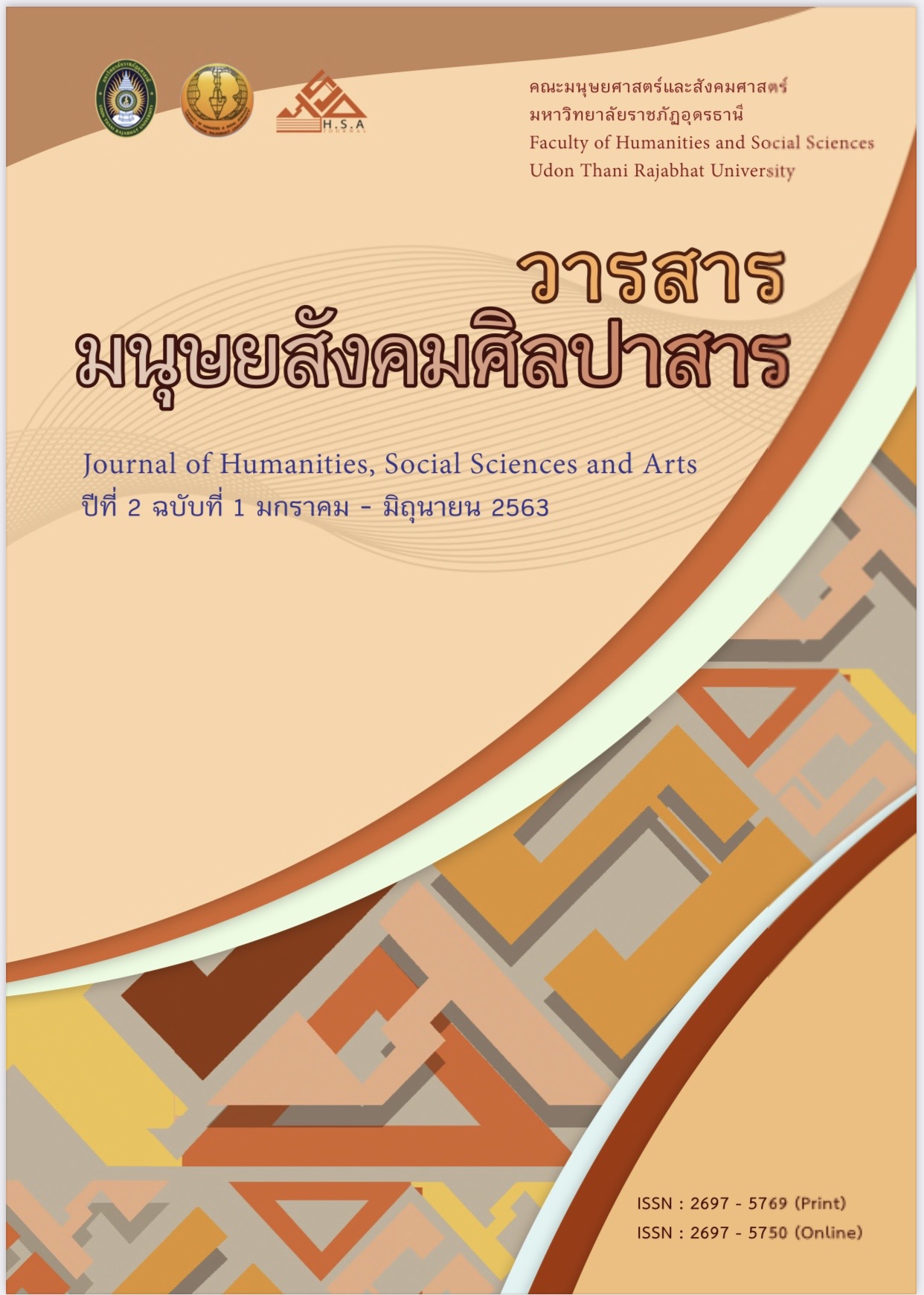The Language and Power of the Traditional Thai-Isan Herbalists
Main Article Content
Abstract
The research aimed at studying the language and influence of Thai-Isan herbalists by considering linguistic characteristics concepts. The sampling groups were selected specifically and comprised six Thai-Isan herbalists from Udon Thani, Khon Kaen, and Srisaket provinces. The results of the study revealed that linguistic features and language indicators empowered the Thai-Isan herbalists. There were four linguistic features found in the current study. First, the clarity feature with indicating words included words used for proof or visuality and references. Second, obligation-direction feature was composed of obligation verbs, permission verbs, directive verbs, and imperative sentences. For the obscurity feature regarded as the third aspect, the language indicators were non-defined sources, metaphorical expressions, incomplete information, and bringing up small issues. Last, the persuasive feature consisted language indicators such as pronouns, use of rhetorical questions, and metaphorical expressions. From the linguistic features proposed previously, they showed that the Thai-Isan herbalists were reliable, trustworthy, and impressive. Therefore, the roles of Thai-Isan herbalists were perceived as the philosophers, the decision makers, and the amiable ones.


